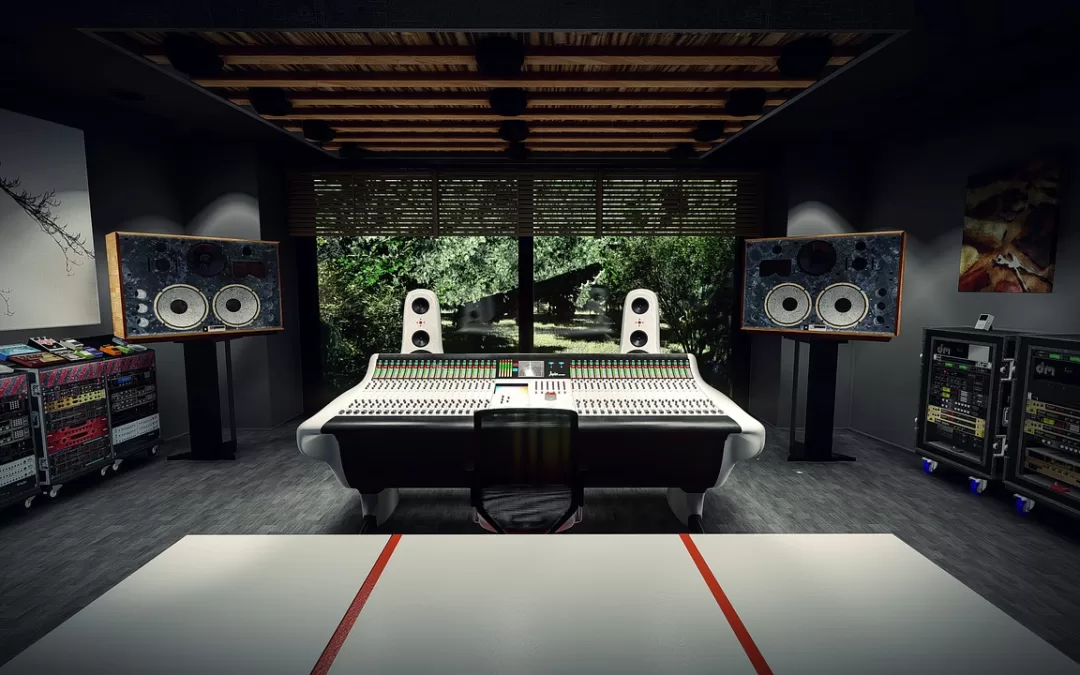Soundproofing : What You Need to Know
Soundproofing is a technique used to minimize or eliminate unwanted noise and vibrations, creating a more peaceful and comfortable environment. Whether you want to reduce external noise entering your living space, improve privacy in your office, or create a sound-controlled recording studio, soundproofing plays a vital role in achieving your goals.
Understanding the Mechanism of Soundproofing
Soundproofing works by employing various principles to obstruct the transmission of sound waves. When sound waves encounter an obstruction, such as a soundproof barrier or material, they are either absorbed, reflected, or transmitted. By interrupting the sound waves’ path, soundproofing helps prevent noise from entering or leaving a designated area.
Effective Soundproofing Techniques
There are several effective soundproofing techniques available, each suited for specific applications. Some common techniques include:
- Insulation: Adding insulation to walls, floors, and ceilings helps reduce airborne sound transmission.
- Mass-Loaded Vinyl (MLV): MLV is a dense and flexible material that effectively blocks sound. It can be installed on walls, floors, and ceilings.
- Acoustic Panels: These panels absorb sound waves and improve the acoustic quality of a room.
- Soundproof Curtains: Heavy and dense curtains can significantly reduce noise transmission through windows and doors.
- Door and Window Seals: Proper sealing minimizes sound leakage around doors and windows.
- Decoupling: Creating an air gap between surfaces helps prevent vibrations and reduces sound transmission.
- Soundproofing Paint: Special sound-absorbing paint can be applied to walls and ceilings to reduce noise reflection.
Choosing the Right Soundproofing Materials
The choice of soundproofing materials depends on the specific requirements of your project. Factors to consider include the type of noise you want to address, the location, budget, and aesthetic preferences. Some commonly used materials are:
- Fiberglass Insulation: Ideal for walls, ceilings, and floors, fiberglass insulation absorbs sound effectively.
- Mass-Loaded Vinyl (MLV): This dense material is particularly effective against low-frequency sounds and is often used in studios and entertainment venues.
- Acoustic Foam Panels: These lightweight panels are easy to install and provide excellent sound absorption properties.
- Soundproof Drywall: Special drywall with additional soundproofing properties can be used to enhance noise reduction in walls and ceilings.
- Green Glue: A viscoelastic compound used between layers of drywall, Green Glue dampens sound vibrations and improves soundproofing efficiency.
Soundproofing for Residential Spaces
In residential spaces, soundproofing can be crucial to ensure a peaceful and comfortable living environment. It helps reduce noise from outside sources such as traffic, neighbors, or nearby construction. Installing soundproof windows, sealing gaps, and using sound-absorbing materials can significantly enhance the overall acoustic quality of your home.
Soundproofing for Commercial Buildings
Commercial buildings often face challenges such as excessive noise from HVAC systems, elevators, or adjacent offices. Soundproofing solutions like acoustic ceiling tiles, sound barriers, and vibration isolation mounts can help create a productive and noise-free workspace for employees.
Soundproofing for Home Recording Studios
For aspiring musicians and audio enthusiasts, achieving optimal sound quality is essential. Soundproofing a home recording studio involves a combination of techniques such as room-within-a-room construction, using acoustic panels, bass traps, and isolating equipment vibrations. This ensures that external noises do not interfere with the recording process, resulting in professional-grade audio production.
Soundproofing for Offices and Conference Rooms
In offices and conference rooms, soundproofing can enhance privacy and productivity. By implementing sound-absorbing panels, acoustic partitions, and properly sealing doors and windows, you can create a more focused and confidential environment, allowing employees to work without distractions.
Soundproofing for Entertainment Venues
Entertainment venues, such as theaters, cinemas, and concert halls, require excellent soundproofing to prevent sound leakage and maintain superior audio quality. Combining architectural design, acoustic materials, and specialized soundproofing techniques can help create immersive experiences for audiences while minimizing disturbances to neighboring spaces.
The Importance of Soundproofing
Soundproofing is essential for several reasons. It provides comfort and tranquility by reducing external noise, promotes privacy in various settings, enhances audio quality, and complies with building regulations and noise control standards. Whether it’s for residential, commercial, or entertainment purposes, soundproofing contributes to a more enjoyable and functional environment.
How Soundproofing Works: Explained
Soundproofing works by employing the principles of absorption, reflection, and transmission. When sound waves encounter a soundproof barrier, such as an acoustic panel or insulation material, they can be absorbed, reflected back into the room, or transmitted through the barrier. The effectiveness of soundproofing depends on the density, thickness, and design of the materials used.
Common Soundproofing Myths Debunked
- Myth: Soundproofing eliminates all noise.
Reality: While soundproofing significantly reduces noise, it cannot eliminate it entirely. It aims to minimize the impact of noise and create a more comfortable environment.
Myth: Soundproofing is expensive and impractical.
Reality: Soundproofing solutions are available at various price points, and the investment often pays off in terms of improved comfort, productivity, and overall well-being.
Myth: Thick walls automatically provide soundproofing.
Reality: The thickness of walls alone does not guarantee soundproofing. The materials used, along with proper insulation and sealing, play a crucial role in effective noise reduction.
Soundproofing on a Budget: Tips and Tricks
If you’re on a budget but still want to improve the soundproofing in your space, consider the following tips:
- Seal gaps and cracks: Use weatherstripping, door sweeps, and caulk to seal gaps around windows, doors, and electrical outlets.
- Use rugs and carpets: Adding rugs or carpets can help absorb sound and reduce echoing in a room.
- Rearrange furniture: Strategically placing furniture can help break up sound waves and minimize noise reflections.
- Hang curtains or drapes: Thick curtains or drapes can act as sound absorbers and provide some degree of soundproofing.
- DIY soundproofing panels: Create your own sound-absorbing panels using materials like fiberglass insulation, fabric, and wooden frames.
Soundproofing vs. Sound Absorption: Understanding the Difference
Soundproofing and sound absorption are often used interchangeably, but they serve different purposes. Soundproofing aims to prevent sound from entering or leaving a space, while sound absorption focuses on reducing echo and reverberation within a room. Both techniques are essential and can be combined to achieve optimal acoustic control.
Maintaining Soundproofing: Best Practices and Maintenance Tips
To ensure the longevity and effectiveness of your soundproofing measures, follow these maintenance tips:
- Regularly inspect for gaps or cracks and reseal them if needed.
- Clean and maintain soundproofing materials according to the manufacturer’s guidelines.
- Check for any signs of wear or damage and repair or replace components as necessary.
- Keep an eye out for any changes in noise levels and address them promptly to maintain a soundproof environment.
- How does soundproofing work?
Soundproofing works by obstructing sound waves through absorption, reflection, or transmission.
- What are some effective soundproofing techniques?
Effective soundproofing techniques include insulation, mass-loaded vinyl (MLV), acoustic panels, soundproof curtains, and door/window seals.
- How can soundproofing benefit residential spaces?
Soundproofing in residential spaces reduces external noise, improves privacy, and enhances overall comfort.
- What are some budget-friendly soundproofing tips?
Budget-friendly soundproofing tips include sealing gaps, using rugs/carpets, rearranging furniture, hanging curtains/drapes, and creating DIY soundproofing panels.
- What is the difference between soundproofing and sound absorption?
Soundproofing aims to prevent sound transmission, while sound absorption focuses on reducing echo and reverberation within a room.
Conclusion:
Soundproofing is a valuable technique that allows you to control and minimize unwanted noise in various environments. By understanding the mechanism of soundproofing, exploring different techniques and materials, and considering the specific requirements of your space, you can create a more peaceful and comfortable setting. Whether it’s for residential, commercial, or entertainment purposes, soundproofing significantly contributes to a better acoustic experience and improved quality of life.


I like this blog very much, Its a real nice berth to read and obtain info.Blog monetyze